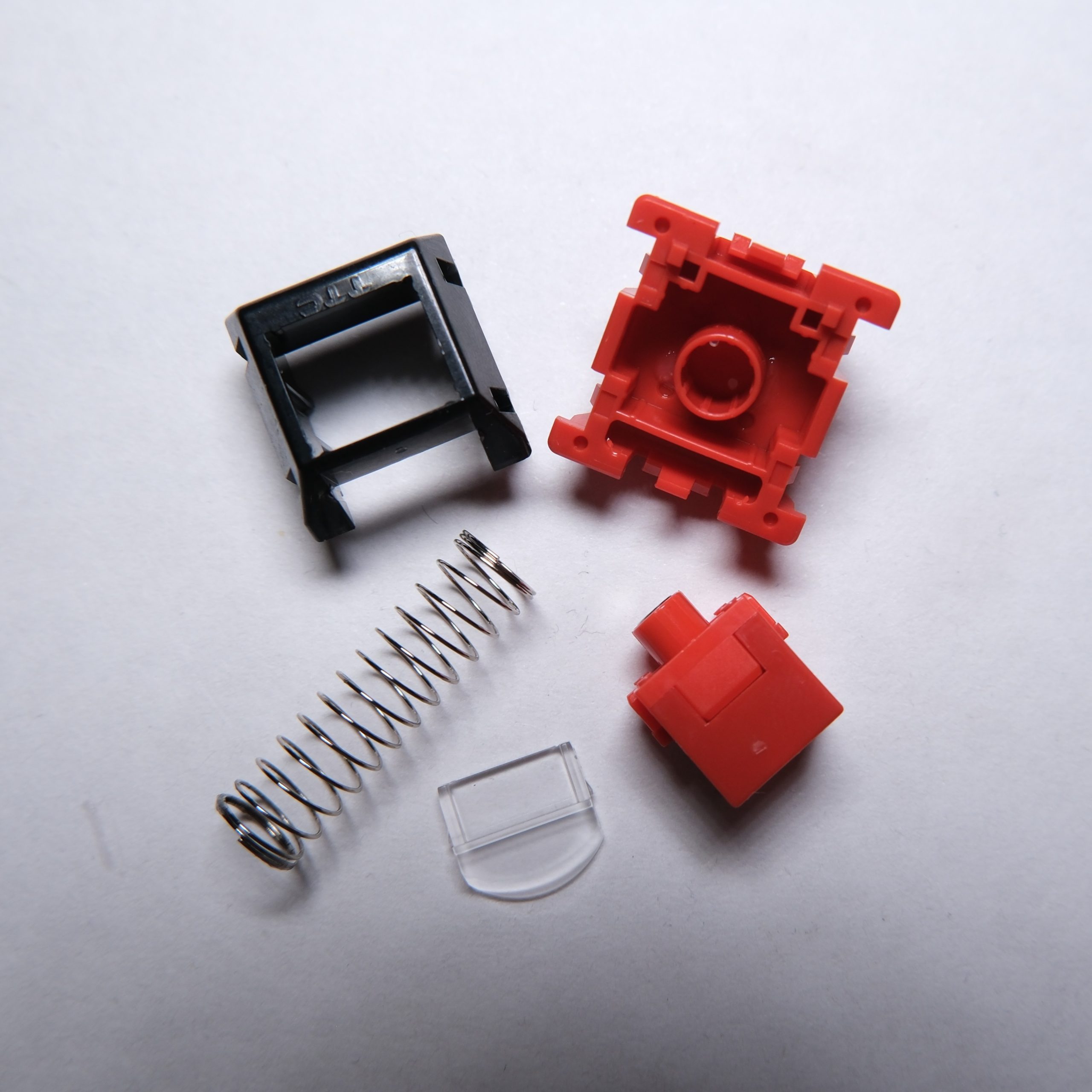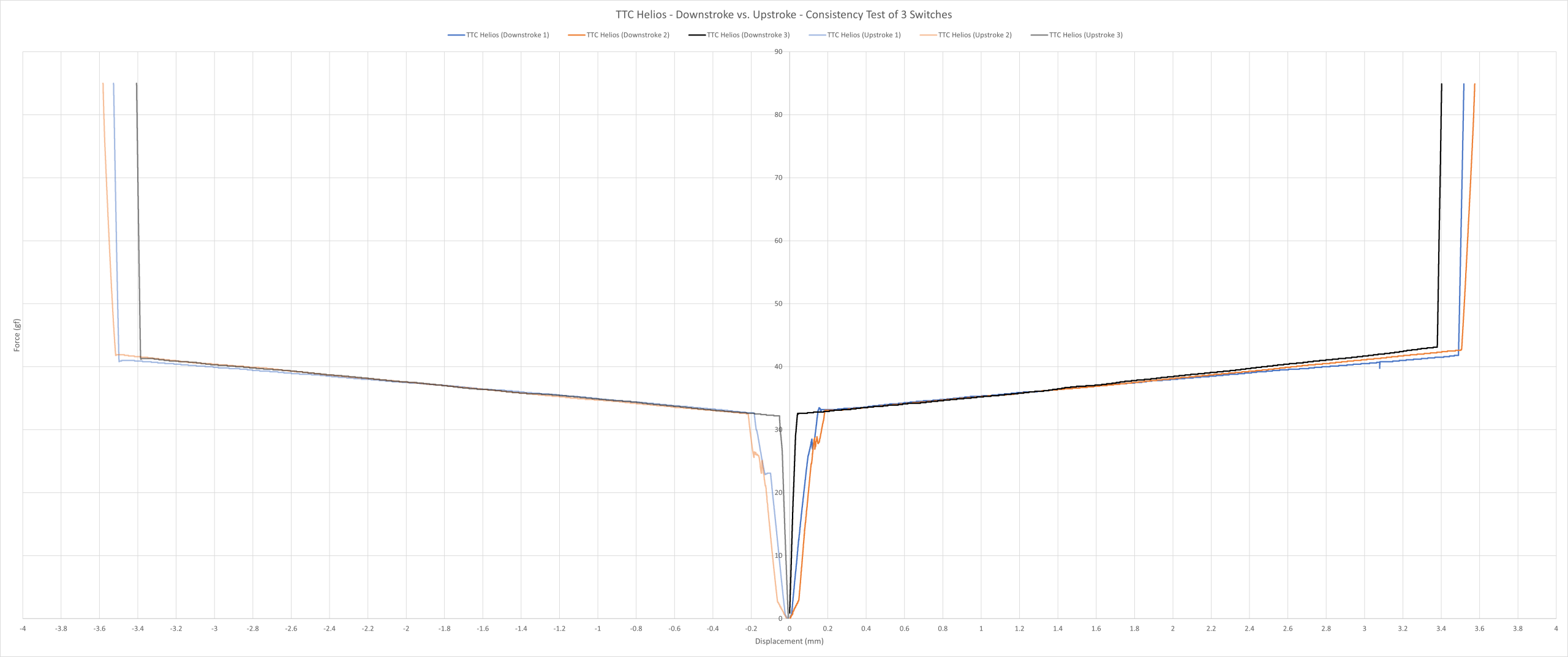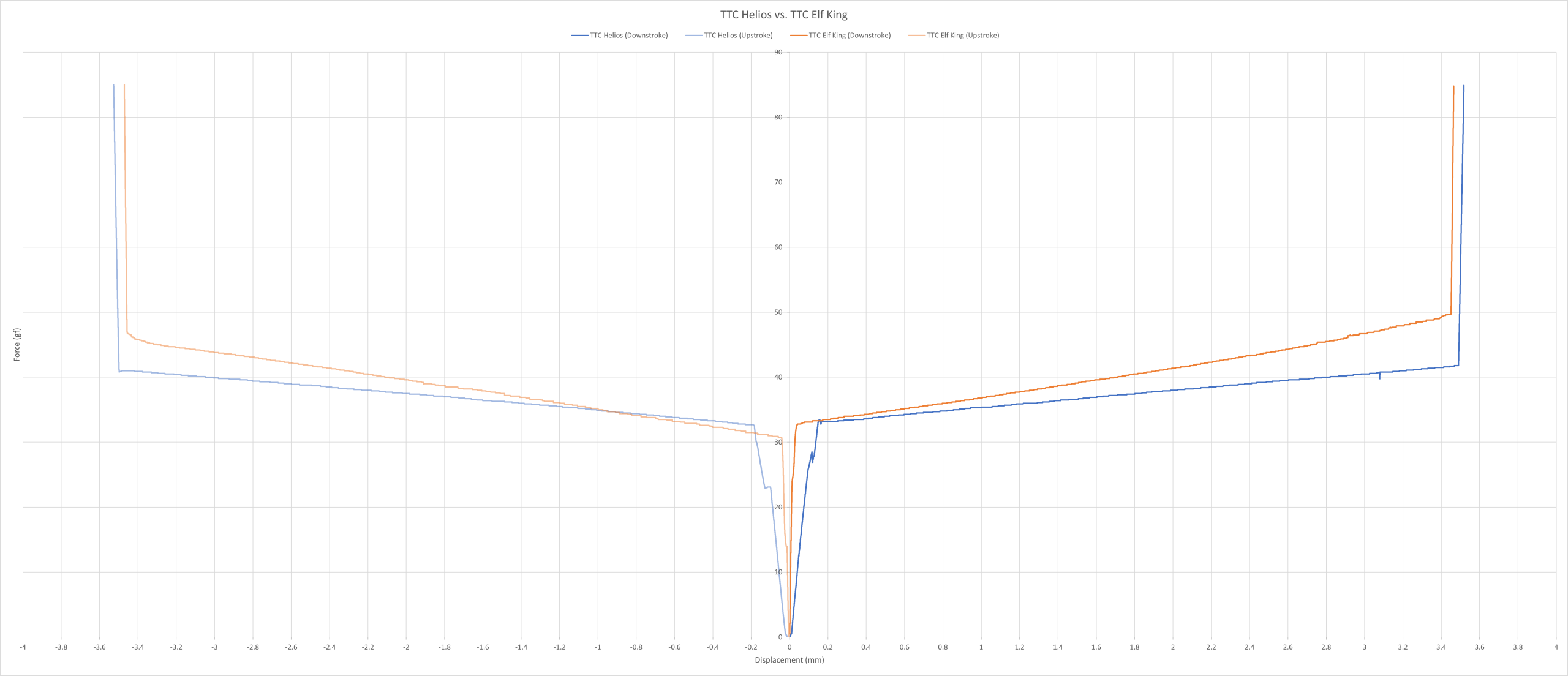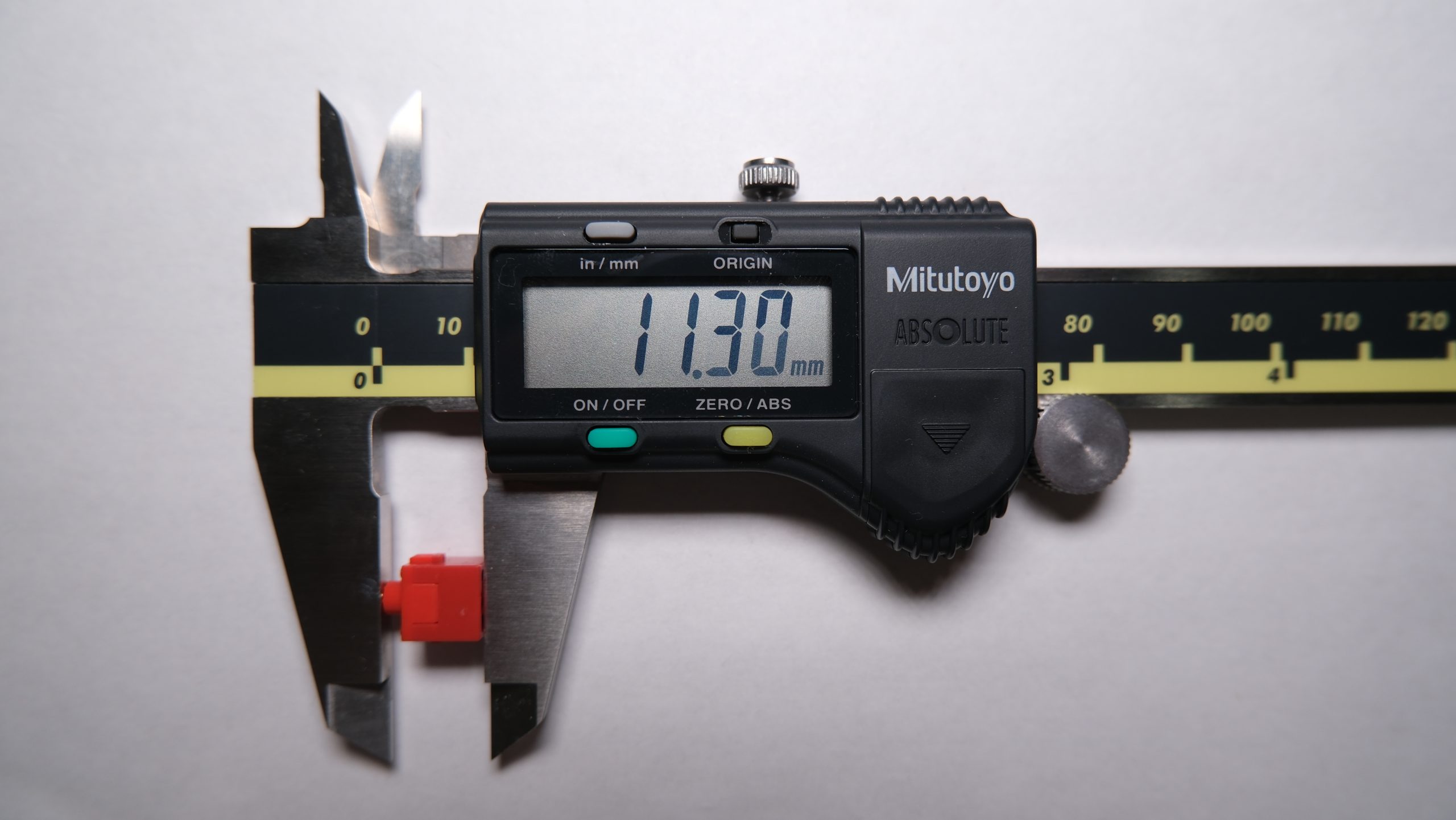| Switch Type: Linear | Mount: PCB Mount (2-pin) | Spring: Single Stage | Price: $17.78 (15pcs) on TTC Switch |
| Bottom Housing: POM | Stem: POM | Factory Lubed: Yes |
| Actuation Point (mm): | Customizable | Actuation Point (mm): | Customizable |
| Actuation Force (gf): | Customizable | Actuation Force (gf): | Customizable |
| Total Travel (mm): | 3.4 ± 0.2 | Total Travel (mm): | 3.49 |
| Reset Point (mm): | Customizable | Reset Point (mm): | Customizable |
| Bottom-out Force (gf): | Bottom-out Force (gf): | 41.8 | |
| Stem Length (mm): | 11.30 | ||
DISCLAIMER | Please Read:
These switches were sent by TTC for review and testing purposes. No one paid me to write this review, and impartiality will always be a top priority here at KeebWorks.
TL;DR
The TTC Helios is another one of TTC’s magnetic switches. However, unlike the TTC Elf King, the Helios features a dust-proof stem.
I’m not sure why anyone would choose to buy the Elf King over the Helios unless it is priced considerably cheaper or for aesthetic reasons.
Smoothness: 9/10
On-centre keypresses are EXTREMELY smooth! Again, they’re extremely smooth due to them being a contactless switch. Look at the force curve below if you have any doubt.
Off-centre keypresses are very smooth with only very slight inconsistencies on very slow keypresses as a couple of switches exhibited minor levels of scratchiness at very slow keypresses.
Overall, just like with the Elf King, these are as close to perfection as it gets. They’re 100% worth trying out if you already own a PCB that supports these switches.

TTC Helios switch disassembled.
Weighting: 7/10
Now, according to TTC these switches have a customizable actuation point, start off at 35g and have a total travel of 3.4mm.

TTC Helios force curve.
As you can see from the force curve above, the TTC Helios are within specification.

TTC Helios consistency force curve.
They are also extremely consistent with all 3 switches performing as per specifications. Switch 1 (blue line) and Switch 2 (orange line) started closer to 0.2mm unlike Switch 3 (black line). This is thew reason for the slight split towards the end too. Still, they fall within specifications despite this discrepancy.

TTC Helios vs. Durock POM Piano force curve.
The above force curve shows a comparison between the TTC Helios and the Durock POM Piano. The Piano switch is by far the smoothest contact-based switch I’ve ever reviewed with a perfect score of 10, so I wanted to see how it compared to the Helios. Turns out, the Piano switches are significantly heavier from the onset. However, their total travel is near identical.

TTC Helios vs. TTC Elf King force curve.
The above force curve shows a comparison between the TTC Helios and the TTC Elf King. The Helios switch is the lighter of the two with almost a 10g difference at the bottom-out. Although, both switches start off at roughly the same weighting.
Overall, these are lightly weighted linear switches with an extremely consistent performance. Plus, both the actuation and reset point are customisable. However, even with the benefits of customizability, I still found these too light at my chosen 2.5mm actuation point. Having less than 1mm of over-travel, I bottom-out quite often which wouldn’t be an issue if the switches were heavier. Also, there wasn’t a noticeable difference in weighting between the Elf King and the Helios in practice.
Sound: 7/10
Just like with the Elf King, I couldn’t hear a single scratch.
They’re extremely clacky and complement my case setup very well, but compared to the Elf King, these didn’t sound quite as “creamy”; they sounded quiet and thin.
Overall, I don’t like as much as the Elf King, but they’re still solid sounding switches.

The TTC Helios stem length is 11.30mm.
Typing Performance: 8/10
Again, if you’re after top-tier smoothness, these are one of the very switches on the market that can deliver it. Although, at the time of writing these are pricier than the Elf King due to them having a dust-proof stem.
Just like the Elf King, I had no issues with them regarding smoothness or inconsistencies. These were very smooth and consistent. I can’t complain.
Overall, even though I wasn’t a fan of its light weighting, they feature an adjustable actuation point for you to get comfortable with them. As for a recommendation? I can recommend them as long as you don’t mind spending a bit more money for their dust-proof stem; buy the Elf King otherwise.
Gaming Performance: 9/10
Their top-of-the-line smoothness and consistency gave me such a massive advantage even with their light weighting.
They performed very well in both fast and slow-paced games. There was absolutely ZERO scratchiness or inconsistencies throughout my testing period which I found to be highly unusual, but perhaps this could be the reason why people are ditching their traditional mechs.
Overall, just like with the Elf King, switches like this offer the biggest benefit to all gamers, especially more so if you’re on the more competitive side.
Final Score = 40/50 (80%)
